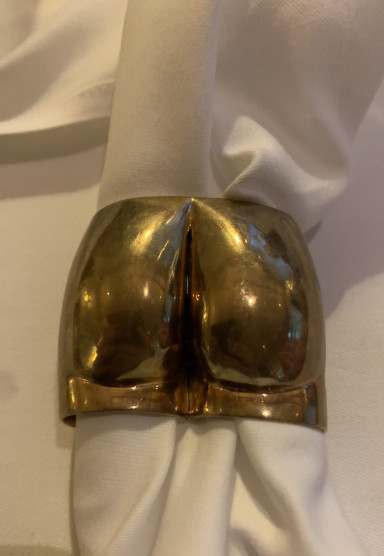

Stephan
Zilkens
,
Zilkens' News Blog 41 2024
Last Monday, we were invited to the Gesellschaft für Moderne Kunst in Cologne to discuss local issues such as Cologne's declining image as an art city, global issues such as if and when Paris will replace London as the capital of the European art trade, and whether Art Basel might seek its centre in Paris, as well as the art market in general and its current state in particular with Susanne Schreiber. In the discussion that followed, we were repeatedly asked if we, as insiders, had an absolute tip on which artist could make you rich right now. That's a question for those more qualified to answer - such as the magazine CAPITAL, which published an EXTRA for 10.50 euros at the beginning of October: Der große Kunstkompass (The Great Art Compass, by the way, has been published for 54 years). As well as interesting stories about collectors and practical tips, the article also explains the criteria used by the Compass to determine its rankings, emphasising that prices of works and auction records are not taken into account. The Art Compass measures exhibitions, reviews, awards, public presentations and acquisitions by major institutions. The latter is perhaps the only link to the market - so there is no guarantee of getting rich... So it turns out that Mount Olympus (the abode of the dead) is topped by Joseph Beuys, Tony Cragg is on the rise, Isaac Julien is tomorrow's star and Gerhard Richter has been number one among the living for what seems like an eternity. In points, that's 183,150, with Beuys on 196,250. Perhaps we should look at the increase in points?
This week sees the opening of Frieze in London, and at the end of the week you can peer into the future at the British Architectural Library for £257.39. For four hours, moderated by Riah Pryor, the future of the art market in 2050 will be discussed! 23 people (including Marc Spiegler of Art Basel fame and Chris Bentley representing main sponsor XLInsurance, an AXA company) + 240 minutes, including an award ceremony for the company presenting the most revolutionary concept for the art market in 2050. With a fair distribution of speaking time, each person can spend just 10 minutes on their vision of 2050. The focus will be on digital technology, possibly coupled with environmental issues: anything that might have developed geopolitically by then will be ignored, as if there are no massive economic and military conflicts that need to be resolved somehow to give art and culture a long-term, marketable perspective. Let's look at it positively: looking forward 26 years and 5 generations (if we follow Hannah Arendt's definition of generations) is a good exercise, perhaps less literary than George Orwell and less pictorial than Stanley Kubrick, but certainly not something that will soon influence the school curriculum - or will it?
It's been just under four weeks since one of the shooting stars of the art insurance industry presented itself as a generous patron at the Positions in Berlin. It will be interesting to see which face the same insurer will show as a sponsor at the Munich Highlight. The boss, Alexander Wiebe, is no longer available through the company. There are public rumours that the company no longer really wants the art business. A bit of restructuring, a change of responsibilities, and the wheel hubs seem to break because the plywood hinders locomotion. A bit like Ben Hur's chariot race. The last one left, Christina Dopplinger, who only a year ago came from XL, a company of you know what, is taking a much more cautious approach to risk than this company was used to until recently. Martje Esser joined Mannheimer in good time and left HDI Global Specialty after just over a year, presumably because she was not really happy there. At Mannheimer she is to succeed Astrid Grittern, who is approaching retirement. The bar is set high. Carola Schenk's move from Mannheimer to Arte Generali is more normal. After years of successful work for an insurer with a real interest in art, she is now moving to a global company that is building up its art business with a much calmer hand.
Despite all the crises, we wish you an energetic start to the week.
The team of Zilkens Fine Art Insurance Broker GmbH in Solothurn and Cologne
automatically translated